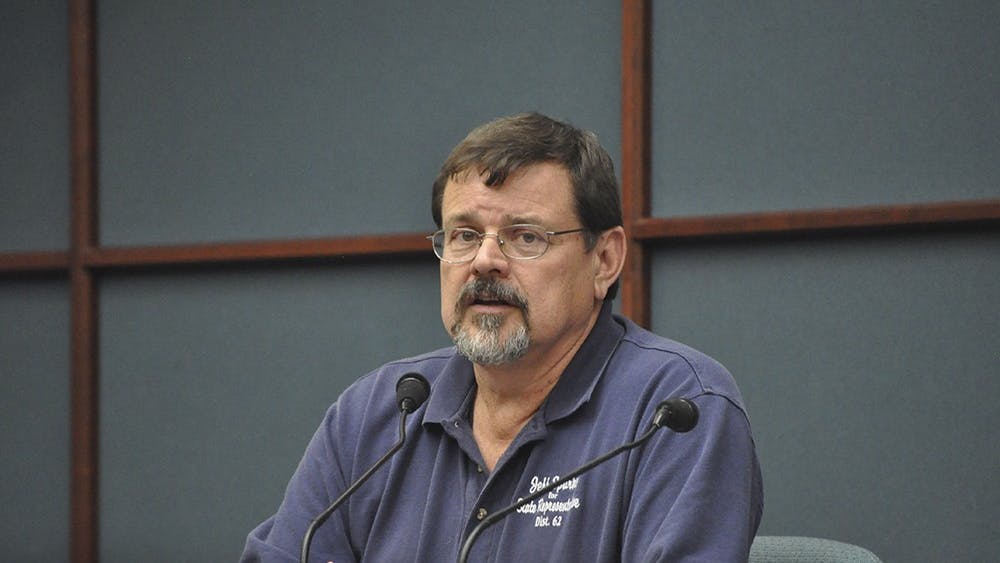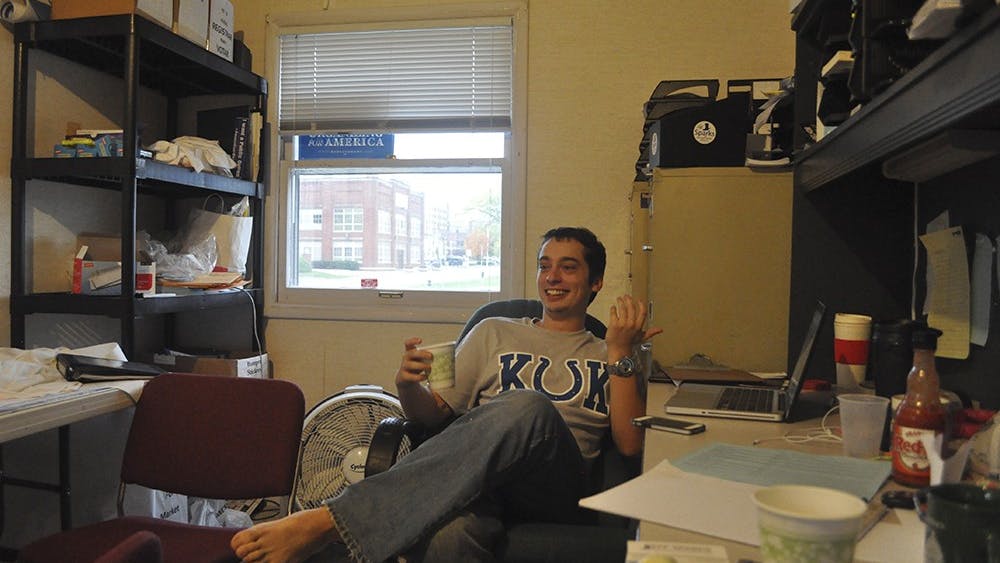Sparks gives up his weekends for the campaign, going to spaghetti dinner and pancake breakfast fundraisers all over the district.
At a Hendricksville, Ind., chili cook-off two and a half weeks before the election, Sparks, Greene County Recorder incumbent Stuart Dowden and sheriff candidate Josh Goodman talk about surprises of campaigning, like how much money it takes to win.
Ubelhor, the District 62 incumbent and Sparks’ opponent again this year, spent about $134,100 in the 2012 election, according to campaign finance reports. Sparks, an unknown, spent about $30,500.
Sparks and Indiana Democrats spent more than three times as much on the 2014 campaign. Ubelhor’s final campaign spending totals were about $129,500 as of Oct. 10 campaign finance reports, not including spending in the last month of the campaign. Sparks’ campaign spent more than $96,600 on ads and staff by that time.
“With what I’m spending and they’re chipping in, I could hire three teachers at Linton,” Sparks tells Goodman and Dowden.
Sparks and similar candidates, largely Democrat, are against the state voucher program that lets parents apply for tuition funds to send their children in grades one through eight to a different school. Up to $4,800 could be transferred from a students’ assigned public school to their parents’ choice of school, usually a private or charter.
Sparks says the state can’t support three school systems. Money that goes to charter or private schools could be funding a full-time librarian for Linton-Stockton Junior High.
Supporters say Indiana’s school voucher system, the most flexible in the country according to the Center for Education Reform, allows parents to choose the best schools for their children without worrying about cost.
Sparks’ district is mostly Greene County, with a chunk of Monroe. Jim Mann of District 46 and Daymon Brodhacker of District 60 also campaigned in Monroe County.
At a public forum debate all three men attended, Mann, a high school government teacher from Terre Haute, loudly condemned teaching to the test, a common refrain of educators. Since the No Child Left Behind Act passed in 2001, schools’ and teachers’ effectiveness is judged partly by how many students pass the state standardized test and improve their scores.
Belinda Sanders, a language arts teacher at Linton-Stockton Junior High, said she feels she has to omit skills like public speaking from her curriculum because they’re not included on ISTEP.
“The state tries to control too much,” she said. “I feel like I’m leaving some things out that will be important down the road.”
Indiana has a waiver that allows some flexibility on NCLB requirements, but the state must administer the federally-approved Indiana Statewide Testing for Educational Progress Plus test to grades three through eight to measure language arts and math skills. Schools that don’t pass enough students can lose funding and are placed on a state watchlist.
Sparks’ school received a D grade from the state from 2011 to 2013 and an A in 2014, keeping it off the Priority Schools list.
After six failing grades in a row, the state can take control of a school from its district and turn it over to a contractor, which has happened to schools in Indianapolis and Gary. The SBOE approved a legislative agenda at their Dec. 3 meeting that includes a proposal to shorten that period to four consecutive failing grades. It could catch chronically failing schools and districts earlier, board members said.
“One of the flaws of intervening in high schools is that students just didn’t begin falling behind at grade nine,” SBOE member Dan Elsener said in a press release. “We need a systemic approach to fix a struggling school district.”






